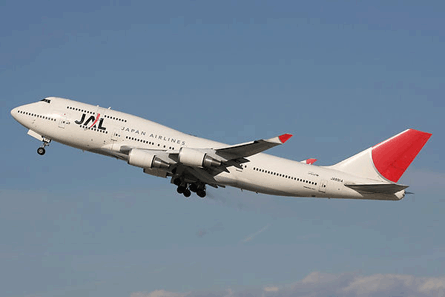JAL completes biofuel flight using flowering plant

Today Japan Airlines (JAL) completed a flight in which a JAL Boeing 747-300 used a mix of biofuel and kerosene to power one of its four engines. JAL...
Keep reading this article by becoming a FlightGlobal member now
PLEASE REGISTER FOR FREE OR SIGN IN TO CONTINUE READING

You have reached your limit of free articles for this period. Register for a FREE account to read this article and benefit from:
- Increased access to online news and in-depth articles from:
- FlightGlobal Premium covering the global aviation industry
- Airline Business providing insight for business leaders
- Weekly newsletters on topics across the industry
